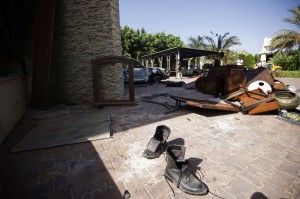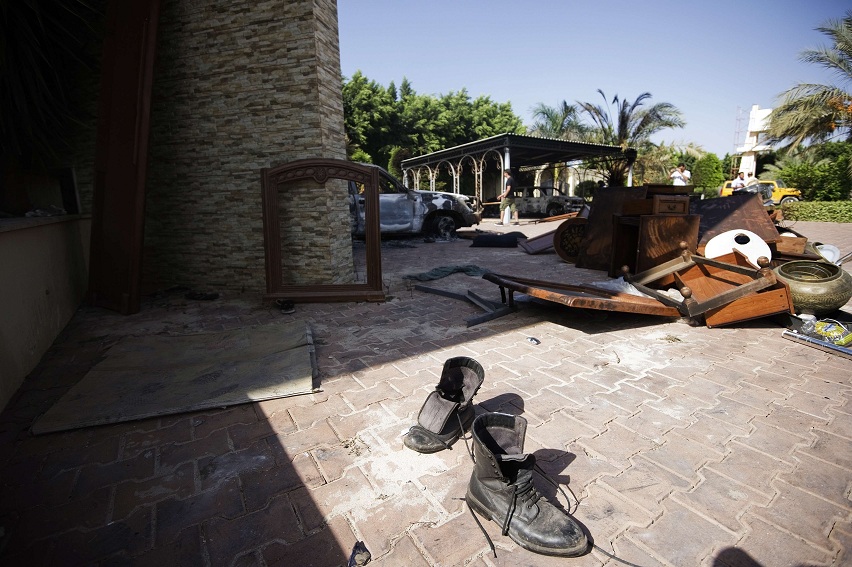
AFP PHOTO / GIANLUIGI GUERCIA
Al Qaeda’s Yemen branch has praised the deadly attack on the US embassy in Libya and urged followers to target other US diplomats.
In a statement released on Saturday, Al-Qaeda in the Arabian Peninsula (AQAP) praised the attack on the United States consulate in Benghazi last Tuesday which left Ambassador Christopher Stevens and three other US diplomats dead, according to AFP.
The group said the killings were the “best example” for Muslims to follow.
“What has happened is a great event, and these efforts should come together in one goal, which is to expel the embassies of America from the lands of the Muslims,” the statement said.
As the protests subsided, the group urged protesters in Muslim nations “to set the fires blazing at these embassies.”
The group also referred to the killing of high-ranking Al Qaeda official and alleged member of the Libyan Islamic Fighting Group, Abu Yahya Al-Libi, who was killed by a US drone in Pakistan in June.
“The killing of Sheikh Abu Yahya only increased the enthusiasm and determination of the sons of (Libyan independence hero) Omar al-Mukhtar to take revenge upon those who attack our Holy Prophet,” AQAP was quoted as saying.
Meanwhile, Libyan authorities have identified 50 individuals believed to have taken part in the attacks, according to Reuters.
“Four have been arrested. Some of the others may have escaped via Benghazi airport, maybe to Egypt, but this not confirmed. We have given their names to all of the Libyan border entry points.” Reuters quoted Libya’s Supreme Security Committee’s spokesperson Abdel-Moneim Al-Hurr as saying.
Though US president Barack Obama’s spokesperson denied the US possessed any evidence which might suggest the attack was preplanned, the initial responses given by unidentified US officials in the immediate aftermath of the attack suggested otherwise, according to Reuters.
Ansar al-Shariah, an Islamist militant group based in Libya and led by former Guantanamo detainee Sufyan bin Qumu has denied responsibility for the attacks despite confirming that some of its members were around the area where the protests at the consulate were held, as was reported by the Associated Press.
Libyan National Council member Ibrahim Al-Sahd denied the official presence of Al- Qaeda within Libya, though he blamed the consulate attack on “foreign elements” who abused the security vacuum in Libya, he told Al-Arabeya TV on Saturday.
“Though there is no Al-Qaeda presence in Libya in its known sense, yet when we speak about Al-Qaeda in other countries, it is foreign complicity in the consulate attack that we mean,” he added.
Meanwhile, the presence of US spies, marines and surveillance drones in Libya has been reported by the AP. US intelligence officials are reportedly gathering different materials from the days prior to the attacks which might be used as proof for who was behind the attacks. The investigation has so far proven fruitless, according to White House spokesperson Jay Carney.
Spokesperson for the Libyan defence ministry Adel Al-Bor’osy stated that all planes flying through Libyan airspace are affiliated with the “Friendship Treaty with Libya”, brokered in November 2011, according to MENA. He also denied reports about the entrance of two US destroyers into Libyan shores in order to protect US interests in Libya, adding that all the US battleships are within international waters and have been there since NATO’s intervention in Libya in March 2011.


